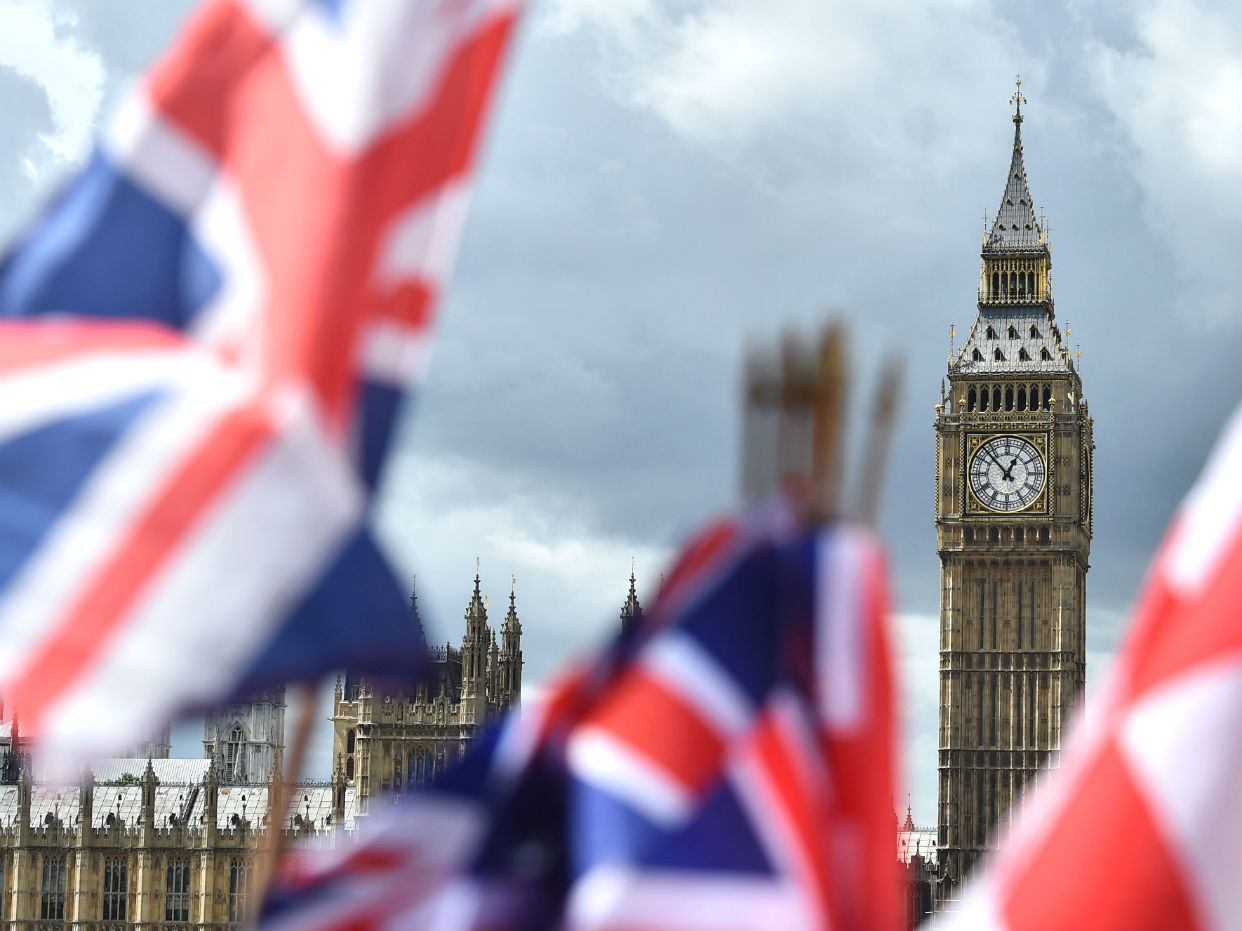General election 2017 results: The most diverse parliament in history
'Record-breaking strides' in the number of women, LGBT and ethnic minority MPs elected - but critics say there is still more work to do

A free daily email with the biggest news stories of the day – and the best features from TheWeek.com
You are now subscribed
Your newsletter sign-up was successful
Last week's general election has delivered the most diverse House of Commons ever, with "record-breaking strides" made in the number of women, LGBT, ethnic minority and state school-educated MPs elected, says the BBC.
LGBT MPs
There are now 45 MPs who openly define themselves as lesbian, gay, bisexual or transgender (LGBT), according to senior government equality advisor John Peart, a 40 per cent increase from the 2015 parliament. They include Scottish Secretary David Mundell, Education Secretary Justine Greening and shadow defence secretary Nia Griffith, with a total of 19 in Labour, 19 in the Tories and seven in the SNP.
The Week
Escape your echo chamber. Get the facts behind the news, plus analysis from multiple perspectives.

Sign up for The Week's Free Newsletters
From our morning news briefing to a weekly Good News Newsletter, get the best of The Week delivered directly to your inbox.
From our morning news briefing to a weekly Good News Newsletter, get the best of The Week delivered directly to your inbox.
"Visibility matters and it makes it easier for young people in particular to know that they can go just as far whether they are gay or straight," said Griffith.
Stonewall says the rise "demonstrates how much progress Britain has made".
Ethnic minority MPs
Thirty years after the first ever black politicians were voted into the House of Commons, 52 ethnic minority MPs have been elected, says think-tank British Future.
A free daily email with the biggest news stories of the day – and the best features from TheWeek.com
Operation Black Vote said many more ethnic minority candidates won in non-urban areas, which showed the UK was "comfortable with its multicultural society."
However, Steve Ballinger, British Future's director of communication, said there was a significant discrepancy between the number of ethnic minority MPs in Labour (32) compared to the Conservatives (19), partly due to the Tories not choosing enough ethnic minority candidates.
Women
The number of female MPs has passed the 200 mark for the first time, with 208 elected. This means women now make up a little under a third of the House of Commons.
However, as with ethnic minority MPs, there is a big gap between the main parties. Labour's 119 women is less than half the party's total number of MPs, while the Conservatives have 67 female MPs, 21 per cent of their total.
Education
The 2017 election has also a seen a significant "shift" in educational background, says the BBC. More than half of those elected (51 per cent) went state schools.
Analysis by the Sutton Trust found 45 per cent of all Conservative MPs elected in 2017 were privately educated, compared to 14 per cent of Labour MPs and six per cent of SNP MPs.
Trust chairman Sir Peter Lampl said the "landscape of British politics has changed considerably", but added the proportion of MPs attending private schools was still far higher than in the general population, where seven per cent are privately educated.
-
 The Olympic timekeepers keeping the Games on track
The Olympic timekeepers keeping the Games on trackUnder the Radar Swiss watchmaking giant Omega has been at the finish line of every Olympic Games for nearly 100 years
-
 Will increasing tensions with Iran boil over into war?
Will increasing tensions with Iran boil over into war?Today’s Big Question President Donald Trump has recently been threatening the country
-
 Corruption: The spy sheikh and the president
Corruption: The spy sheikh and the presidentFeature Trump is at the center of another scandal
-
 How corrupt is the UK?
How corrupt is the UK?The Explainer Decline in standards ‘risks becoming a defining feature of our political culture’ as Britain falls to lowest ever score on global index
-
 The high street: Britain’s next political battleground?
The high street: Britain’s next political battleground?In the Spotlight Mass closure of shops and influx of organised crime are fuelling voter anger, and offer an opening for Reform UK
-
 Is a Reform-Tory pact becoming more likely?
Is a Reform-Tory pact becoming more likely?Today’s Big Question Nigel Farage’s party is ahead in the polls but still falls well short of a Commons majority, while Conservatives are still losing MPs to Reform
-
 Taking the low road: why the SNP is still standing strong
Taking the low road: why the SNP is still standing strongTalking Point Party is on track for a fifth consecutive victory in May’s Holyrood election, despite controversies and plummeting support
-
 What difference will the 'historic' UK-Germany treaty make?
What difference will the 'historic' UK-Germany treaty make?Today's Big Question Europe's two biggest economies sign first treaty since WWII, underscoring 'triangle alliance' with France amid growing Russian threat and US distance
-
 Is the G7 still relevant?
Is the G7 still relevant?Talking Point Donald Trump's early departure cast a shadow over this week's meeting of the world's major democracies
-
 Angela Rayner: Labour's next leader?
Angela Rayner: Labour's next leader?Today's Big Question A leaked memo has sparked speculation that the deputy PM is positioning herself as the left-of-centre alternative to Keir Starmer
-
 Is Starmer's plan to send migrants overseas Rwanda 2.0?
Is Starmer's plan to send migrants overseas Rwanda 2.0?Today's Big Question Failed asylum seekers could be removed to Balkan nations under new government plans